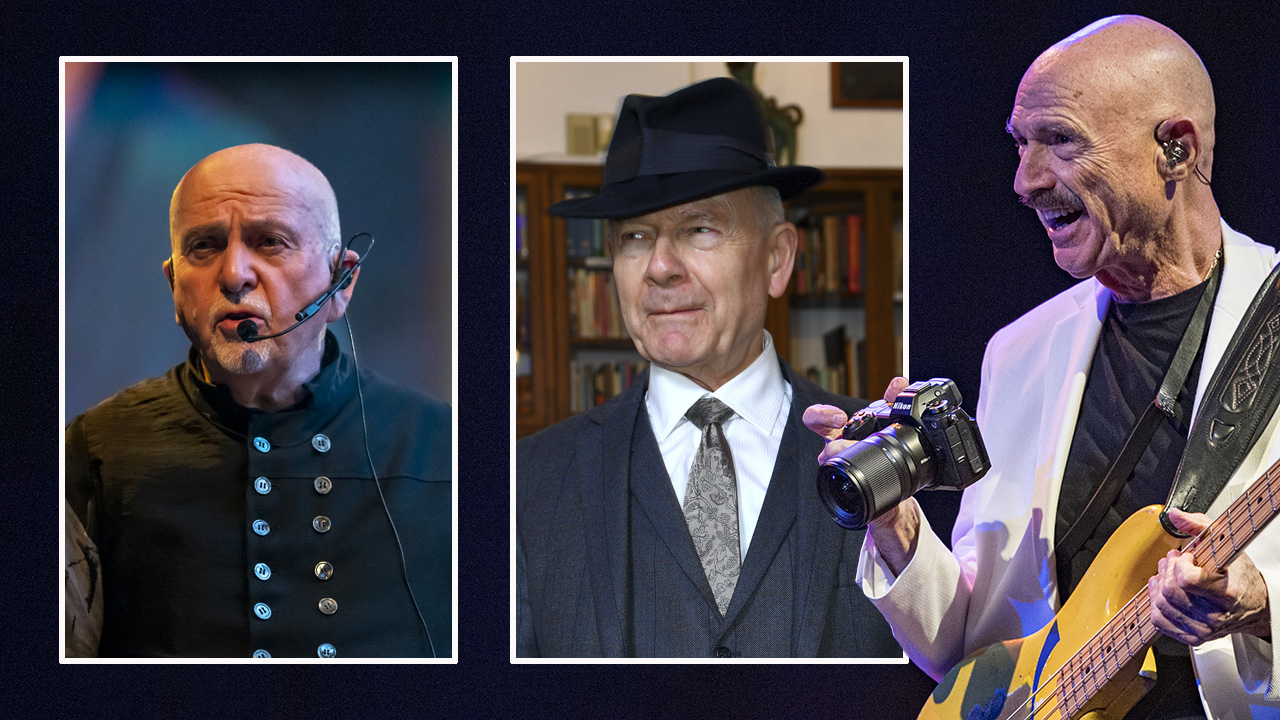Bassist and Chapman Stick player Tony Levin is best known for his work with King Crimson, Peter Gabriel and Stick Men, although his extensive CV includes Pink Floyd, David Bowie, John Lennon and Alice Cooper. In 2024 the Beat member told Prog about how he landed two of his most prominent roles.
You’d worked with producer Bob Ezrin prior to meeting Peter Gabriel. Was he responsible for introducing you?
For sure. Bob had used me on a lot of his Alice Cooper records. When Peter left Genesis, Bob was producing his first solo album and brought me up to Toronto in the summer of ’76. And on that same day – how lucky am I? – I met both Peter Gabriel and Robert Fripp. It turned out to be seminal for my career.
Did you hit it off with Peter immediately?
Absolutely. He was young and enthusiastic, as we all were in those days. For instance, when I suggested the barbershop quartet introduction to one of his pieces [1977’s Excuse Me], he said, “Oh yeah!” I quickly learned that he’s a guy who thinks outside of the box. When he asked if I’d like to go on the road with him, I said yes immediately. That hasn’t changed since ’76. I’ll drop everything and go on the road with Peter.
What’s the secret of that relationship?
There’s mutual respect, musically. I admire him; he’s a brilliant performer. And obviously he thinks well of my bass-playing, because I’ve been there all these years. We do a lot of what you’d call passive-aggressive joking between us. Many times he’s introduced me to the audience as “the emperor of the bottom end” – and yes, he is being facetious, and kind of giving it to me a little bit.
If you look carefully at the videos, you see us clowning around onstage. I’ve always taken photos on the road with Peter, and with everybody else really, during shows. Peter doesn’t love it, but he very kindly allows me to do it. On one tour he was riding a bicycle around in a circle onstage. I had my camera on a tripod and, gee, what a coincidence that almost every night he would knock it over! A lot of stuff like that goes on.
You weren’t really familiar with Genesis when you first met Peter.
I didn’t know the band at all. And let me add that I didn’t know King Crimson when I joined with Robert Fripp, and we called ourselves Discipline. In the rehearsal/audition, when I met Bill Bruford and Adrian Belew, they asked to play the song Red, which I’d never heard. So I had to learn it right there and then.
Was King Crimson your entry into progressive music?
I learned a lot about the daunting aspect of King Crimson… I was pretty immune during my time in the band
Exactly. I was suddenly introduced to this genre that I’d never paid much attention to. I’ve never really put this into words before, but in some ways the complexity of progressive rock harked back to my classical training. I found that I could throw in classical licks and a classical sensibility, and it worked in that style. One example is Peter Gabriel’s On The Air. Live, at the end, I threw in a line that I absolutely knew was from Shostakovich’s Fifth Symphony. And it became part of the piece.
The 1981 version of King Crimson signalled a whole new chapter for the band, one intent on making a complete break from its past.
Yeah, that group had nothing in common with the King Crimson from before. From what I understand, Robert didn’t think of it as King Crimson at all. It was just a new group. We were going to call it Discipline; it was only later, when we were touring Europe and breaking in new material, that he decided this was a King Crimson thing.
Do you think the documantary In The Court Of The Crimson King: King Crimson At 50 captured the essence of the band?
It’s almost impossible, but I think it did. It’s a very deep band. When I saw the documentary, I learned a lot about the daunting aspect of its history and the conflicts and drama. I was pretty immune during my time in the band, so I was blissfully ignorant of most of it.
We don’t present any humour in a King Crimson show, unlike some other bands that I’m in, including Peter Gabriel. But there was always a lot of humour backstage and in rehearsal, just being with each other. And that’s necessary to get through years of playing music that intense.
To that effect, I think the public has now learned about that side of Robert Fripp. He’s very funny, very loose and surprising. Whereas before, I think they thought of him as the stern schoolteacher.



